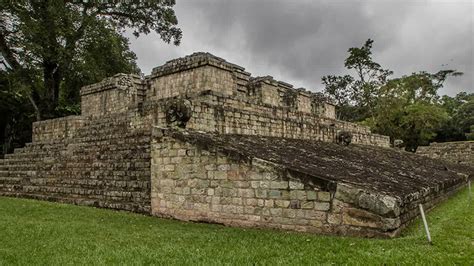Explore the history of Indigenous Peoples in Australia, from European colonization to modern reconciliation efforts. Learn about the impact on communities and the path to independence.
Indigenous Peoples of Australia
Contents
Indigenous peoples of Australia refers to the many different groups of Aboriginal and Torres Strait Islander peoples who have inhabited the continent for over 65,000 years. These diverse groups developed unique languages, cultures, and traditions, forming a deep connection to the land and sea. The First Nations people have a rich spiritual and ceremonial life, with practices varying across different regions. Throughout history, they have demonstrated profound knowledge of the natural environment, passing down valuable skills and traditions through generations.
While there is significant diversity among Indigenous communities, they all share a strong sense of kinship and connection to their ancestral lands. The deep spiritual and cultural connection to country is a central aspect of Aboriginal and Torres Strait Islander identity, shaping their understanding of the world and their place within it. This connection to the land is reflected in their art, storytelling, and belief systems, which continue to be an integral part of their cultural heritage.
The history of Indigenous peoples in Australia is marked by resilience and resistance in the face of European colonization. Despite enduring decades of dispossession, discrimination, and marginalization, Indigenous communities have continued to celebrate and preserve their cultures, languages, and traditions. Today, there is a growing recognition of the importance of Indigenous knowledge, and efforts are being made to promote cultural revitalization and preserve the rich heritage of the First Nations peoples.
It is crucial to acknowledge the enduring legacy of Indigenous peoples and to amplify their voices in shaping the future of Australia. As the country continues to strive for reconciliation and healing, understanding and honoring the unique cultural identities of Aboriginal and Torres Strait Islander peoples is fundamental to fostering a more inclusive and harmonious society.
European Colonization of Australia
European colonization of Australia began in the late 18th century when British explorers, led by Captain James Cook, arrived on the continent’s eastern coast. The British government saw Australia as an opportunity for expansion and a potential site for a new penal colony, following the loss of their American colonies. This led to the establishment of the first British settlement, New South Wales, in 1788, marking the beginning of European colonization in Australia.
The impact of European colonization on the indigenous Aboriginal and Torres Strait Islander peoples was profound and largely negative. The arrival of European settlers led to widespread dispossession of land, violent conflict, and the introduction of diseases, resulting in a significant decline in the indigenous population. Indigenous communities were forcibly removed from their traditional lands and their cultural practices were suppressed, leading to a loss of language, customs, and spiritual beliefs.
The influx of European settlers also brought about significant environmental and ecological changes to Australia. The introduction of non-native flora and fauna, as well as agricultural practices, had a lasting impact on the continent’s ecosystems, leading to the extinction of numerous native species and disruptions to the natural balance of the land.
European colonization of Australia also had lasting social, economic, and political impacts. The imposition of British colonial laws and governance structures, combined with the exploitation of indigenous labor, contributed to the marginalization and disenfranchisement of Aboriginal and Torres Strait Islander communities. This legacy of systemic inequality and injustice continues to have repercussions in modern-day Australia.
Impact on Indigenous Communities
The impact on Indigenous communities in Australia as a result of European colonization has been significant and far-reaching. The arrival of European settlers in the late 18th century brought about massive changes to the traditional way of life for the Indigenous peoples of Australia. The introduction of new diseases, displacement from their lands, and violent conflicts with the colonizers had devastating effects on the Indigenous population.
Many Indigenous communities were forced off their ancestral lands and herded onto government-run reserves or missions. This led to the breakdown of traditional social structures and loss of cultural practices, as well as the erosion of knowledge about the land and its resources that had been handed down through generations. The policies of assimilation and forced removal of Indigenous children from their families, known as the Stolen Generations, further disrupted and traumatized Indigenous communities.
In addition to the social and cultural impacts, the economic well-being of Indigenous communities was also severely affected. Dispossession of land and resources meant that many Indigenous peoples were left in poverty and without access to traditional hunting and gathering grounds. The loss of connection to their ancestral lands and the imposition of Western systems of land ownership and governance further marginalized Indigenous communities.
The ongoing effects of European colonization continue to impact Indigenous communities in Australia today. High rates of poverty, health issues, and social inequality persist within Indigenous populations, despite efforts at reconciliation and redress. However, there is growing recognition of the need to address the historical injustices and to work towards empowerment and self-determination for Indigenous communities in modern Australia.
Australian Federation and Independence
Australian Federation: The process of Australian Federation began in the 19th century, following a series of referendums and negotiations between the various colonies. In 1901, the Commonwealth of Australia was formed, marking the official federation of the six colonies into a single nation. This event was a significant turning point in the country’s history, as it established a unified government and legal system for the entire continent.
Path to Independence: While the Australian Federation granted the country more autonomy, it was not until 1931 that Australia gained legislative independence from Britain with the passage of the Statute of Westminster. This further solidified Australia’s status as a sovereign nation, allowing it to establish its own foreign policy and make decisions independently from the British government.
Impact on Society: The Federation and subsequent independence had a profound impact on Australian society, fostering a sense of national identity and pride. The country was able to develop its own unique cultural and political identity separate from its British roots, leading to the establishment of national symbols, holidays, and traditions.
Significance: The Australian Federation and eventual independence were critical milestones in the country’s history, shaping its political, social, and cultural landscape. These events laid the groundwork for the modern Australian state, allowing it to become a respected member of the international community and take charge of its own destiny.
Modern Australia and Reconciliation Efforts
Modern Australia has made significant strides in its efforts towards reconciliation with the Indigenous peoples. With a history of colonization and mistreatment of the Aboriginal and Torres Strait Islander peoples, Australia has acknowledged the need for reconciliation and has taken steps towards healing the wounds of the past.
One of the key efforts towards reconciliation is the National Apology to the Stolen Generations, delivered by then Prime Minister Kevin Rudd in 2008. This formal apology acknowledged the historical mistreatment of Indigenous children who were forcibly removed from their families and communities. The apology was a significant moment in Australia’s history and marked a step towards addressing the injustices of the past.
In addition to the apology, Australia has also made efforts to close the gap in health, education, and employment outcomes between Indigenous and non-Indigenous Australians. Programs and initiatives aimed at improving the lives of Indigenous peoples have been implemented at both the federal and state levels, indicating a commitment to addressing the disparities that exist.
Reconciliation in Australia is an ongoing process, and while progress has been made, there is still much work to be done. The recognition of Indigenous culture, language, and land rights, as well as the empowerment of Indigenous communities, are important aspects of the reconciliation efforts. It is crucial for the broader Australian society to continue to engage in dialogue, education, and action to work towards a more equitable and respectful relationship with the Indigenous peoples of Australia.













